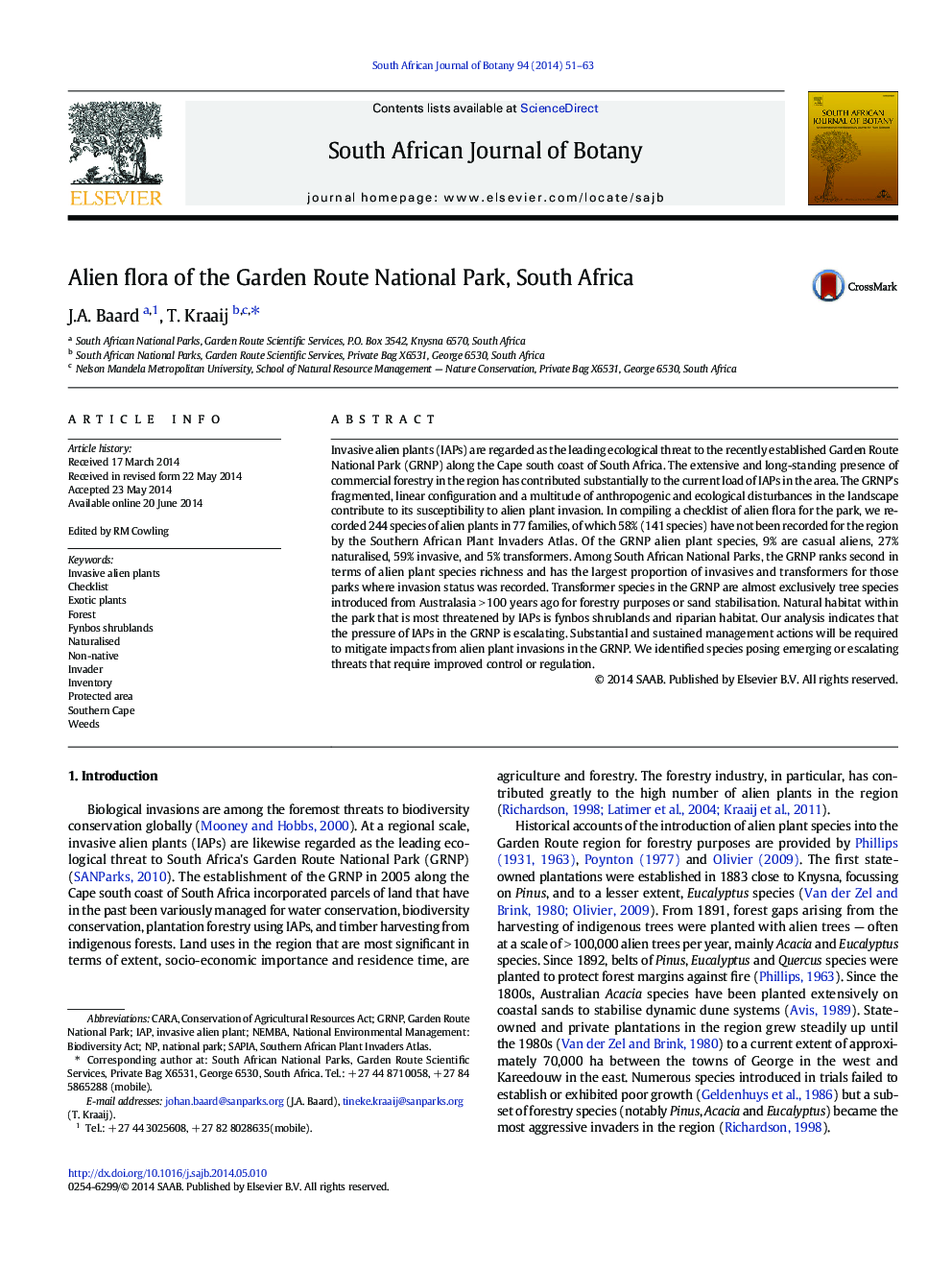| کد مقاله | کد نشریه | سال انتشار | مقاله انگلیسی | نسخه تمام متن |
|---|---|---|---|---|
| 4520661 | 1625164 | 2014 | 13 صفحه PDF | دانلود رایگان |
• The Garden Route National Park currently has 244 alien plant species in 77 families.
• 9% of species are casual aliens, 27% naturalised, 59% invasives and 5% transformers.
• Transformers are mostly trees introduced from Australasia for forestry purposes.
• This list almost doubled Southern African Plant Invaders Atlas records for the area.
• Invasion pressure is increasing; we listed species posing emerging/escalating threats.
Invasive alien plants (IAPs) are regarded as the leading ecological threat to the recently established Garden Route National Park (GRNP) along the Cape south coast of South Africa. The extensive and long-standing presence of commercial forestry in the region has contributed substantially to the current load of IAPs in the area. The GRNP's fragmented, linear configuration and a multitude of anthropogenic and ecological disturbances in the landscape contribute to its susceptibility to alien plant invasion. In compiling a checklist of alien flora for the park, we recorded 244 species of alien plants in 77 families, of which 58% (141 species) have not been recorded for the region by the Southern African Plant Invaders Atlas. Of the GRNP alien plant species, 9% are casual aliens, 27% naturalised, 59% invasive, and 5% transformers. Among South African National Parks, the GRNP ranks second in terms of alien plant species richness and has the largest proportion of invasives and transformers for those parks where invasion status was recorded. Transformer species in the GRNP are almost exclusively tree species introduced from Australasia > 100 years ago for forestry purposes or sand stabilisation. Natural habitat within the park that is most threatened by IAPs is fynbos shrublands and riparian habitat. Our analysis indicates that the pressure of IAPs in the GRNP is escalating. Substantial and sustained management actions will be required to mitigate impacts from alien plant invasions in the GRNP. We identified species posing emerging or escalating threats that require improved control or regulation.
Journal: South African Journal of Botany - Volume 94, September 2014, Pages 51–63
